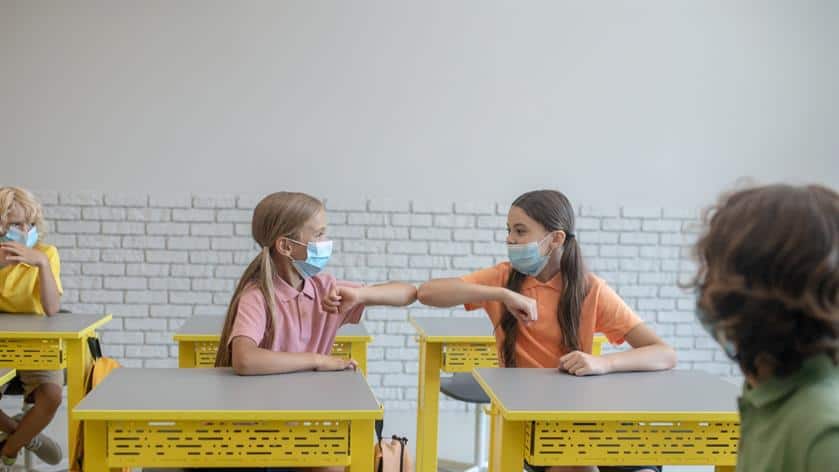How Has the Pandemic Affected Children’s Social Development?
There are no two ways about it: no one is exempt from at least some of the effects of COVID-19. For children and adolescents, one of the biggest impacts has been in their school and social environments.
In March of 2020, kids were forced to switch to distance learning overnight. Little did most kids (or parents) know that they wouldn’t be going back to school except to gather their supplies and bring them home for the summer. Even though shelter-in-place orders were soon lifted, hybrid and distance learning were the norm last school year. Add to this masks and social distancing requirements in school and other public places. Truly, the social impact on kids has been huge.
When we talk about how the pandemic has impacted our kids, it’s important to take an up-close look at how children and adolescents develop.
Young children and social development
Few would argue that setting a child up for healthy social development begins in the early years of childhood.
Young children thrive when they develop early, healthy attachments with parents and caregivers. According to John Bowlby’s attachment theory, children must “develop a relationship with at least one parent or primary caregiver for normal social and emotional development.”
Throughout the pandemic, parents and children have spent much more time together. While this is a cause for concern in families where addiction and abuse are present, for families with healthy dynamics, young children stand to benefit greatly.
Not only have young children spent vast amounts of time with parents and caregivers but they’ve also spent more time with siblings. This has allowed them to form secure attachments within the greater family unit as well.
Psychologists list several specific ways young children stand to benefit from forming these healthy attachments:
● They grow in independence
● They form more successful relationships with people outside the home
● They experience greater academic achievement
● They experience less anxiety
● They develop better problem-solving skills
Ultimately, while most children weren’t able to go to school and interact with their peers, at least for a while, young children with healthy family units may have benefited by forming closer family
attachments.
Adolescents and social development
The social needs of adolescents are much different than those of young children. During the teen years, your child’s brain is developing at a rapid rate comparable to that of infancy.
Developmental psychologist and family coach Cameron Caswell believes that, in the short term,
teenagers will manage ok socially—they’re accustomed to connecting digitally with their peers. However, she’s concerned that if things stretch on too long, they could suffer some hefty social development setbacks.
In order to pave the way for a healthy transition into adulthood, kids learn and develop in several
important ways during these formative adolescent years:
● They learn greater independence
● They learn basic life skills
● They develop their belief systems
● They learn who they are and how to interact with the world
● They learn how to resolve conflict
Because two weeks to “flatten the curve” has stretched into 2+ years of trying to get the pandemic under control and get back to “normal,” many adolescents are still going to school online at least part time, not enjoying as much face-to-face time with friends and not participating as frequently in sports and clubs.
Socially speaking, the pandemic is hindering teenagers’ ability to meet new people, manage group interactions, interact with authority figures, navigate a normal work environment, etc.
Because they’re not interacting as much socially, they’re also not learning as much about themselves during a prominent time of self-discovery.
The Pandemic & Academic Struggles
Not only has the pandemic affected children and adolescents in terms of social development but, in many ways, it has also exacerbated academic struggles.
Schools and teachers have done their best in this unprecedented time, but there’s no denying that our kids are struggling.
From early elementary schoolers who missed the formative preschool/kindergarten introduction to formal schooling to high schoolers who have missed valuable instruction time, all students are experiencing what experts are calling the “COVID slide.”
With higher than ever rates of reading below grade level and struggles across the board, the school systems are also overwhelmed.
Instead of waiting for your school to take action or for your kid to just “catch up” on their own, taking proactive steps to supporting your child’s academic development will help counteract these devastating effects on our kids’ schooling.
LearningRx is here to help kids of all ages lay a better foundation for learning. If you want to learn more about our services, visit our website or contact us here.







